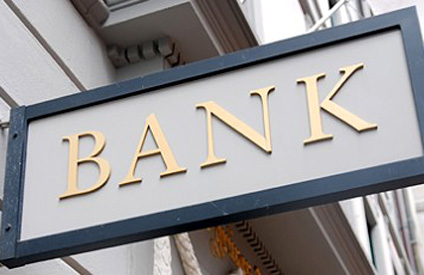By Charlene Crowell
On September 28, two of the nation’s largest and most influential business groups filed a lawsuit against the Consumer Financial Protection Bureau (CFPB) and its Director Rohit Chopra. The action aims to prevent the CFPB from using its existing authority to protect consumers from racial discrimination when seeking mortgages, auto loans, credit cards, bank accounts, or other financial services.
Leading the lawsuit are the U.S. Chamber of Commerce, a lobby group for more than three million businesses across the country, and the American Bankers Association’s over 4,000 banks and trust companies. Additional co-plaintiffs include: the Consumer Bankers Association, Texas Association of Business, and the Independent Bankers Association of Texas.

The lawsuit argues that when the CFPB conducts its regular exams of big banks and other financial institutions, it does not have the authority to look for discrimination – based on race, religion, and other personal characteristics – that is illegal under the prohibition on unfair, deceptive, and abusive practices.
“The CFPB is pursuing an ideological agenda that goes well beyond what is authorized by law and the Chamber will not hesitate to hold them accountable,” U.S. Chamber Executive Vice President and Chief Policy Officer Neil Bradley said in a statement.
But federal laws – not ideology – are the framework for the CFPB’s anti-discrimination work.
Discrimination in housing and lending more broadly were outlawed by 1968’s Fair Housing Act and 1974’s Equal Credit Opportunity Act (ECOA). Enforcing these laws is essential for financial fairness.
At the same time, illegal financial discrimination is pervasive, and some exists beyond the parameters of these fair lending laws that have traditionally been the focus of regulators. For example, the Student Borrower Protection Center has pointed to debt collection, predatory for-profit colleges, reporting credit information, and financial advice scams as markets where discriminatory acts or practices may not be covered by laws focused on the extension of credit, but that constitute unlawful financial discrimination nonetheless.
“When a person is denied access to a bank account because of their religion or race, this is unambiguously unfair,” CFPB Director Chopra said in a statement announcing the Bureau would start looking for unlawful non-credit financial discrimination.
In a blog post, CFPB officials in charge of supervision and enforcement wrote, “[w]hen people of color suffer racist conduct in the financial marketplace, it can cause substantial monetary and non-monetary harms.”
Consumer groups had strong reactions to the business groups’ lawsuit, saying it ignored the impetus for creating a federal financial watchdog: to ensure that financial services firms no longer prey upon unsuspecting consumers – particularly Black and Latino consumers who often were targeted for financial exploitation.
“It is outrageous these trade associations could suggest that discrimination in any financial service is not unfair or abusive or that the CFPB should not be monitoring the financial industry for discrimination wherever it occurs,” said Rich Dubois, executive director of the National Consumer Law Center. He added that “People of color are more likely to be unbanked, to suffer unexplained disparities in credit scores and reports used for purposes beyond credit, and to experience discrimination in multiple areas throughout their financial lives.”
Similarly, Elyse Hicks, consumer policy counsel at Americans for Financial Reform, a broad-based advocacy coalition that includes civil rights and racial justice advocates, also spoke out.
“With this lawsuit, the bank lobby has joined the disgraceful campaign of many groups and politicians that exploit racial grievance to stop the United States from facing up to the very real effects of persistent discrimination,” said Hicks in a statement. “The goal of big banks is simply to avoid having to face up to their own role in the historic wrong of structural racism, and the costs of that to their own bottom lines.”
“The CFPB has clear authority, as the top consumer watchdog, to watch out for discrimination of all kinds in consumer finance, penalize offenders, and correct bank practices,” Hicks concluded.
A multi-agency initiative begun nearly a year ago that included CFPB and the Department of Justice took a similar approach in response to discrimination in financial services.
That effort resulted in a nearly $9 million settlement with Trustmark National Bank, headquartered in Jackson, MS, for redlining in majority-Black and Latino neighborhoods in the Memphis-Mississippi-Arkansas Metropolitan Statistical Area. The settlement found that Trustmark violated ECOA, the Consumer Financial Protection Act, and the Fair Housing Act.
The settlement included: a $5.5 million civil penalty payable to CFPB and the OCC; the creation of a $3.85 million loan fund targeted to Black and Latino communities; and an additional $600,000 earmarked to underwrite community partnership activities and advertising in underserved communities.
“Trustmark purposely excluded and discriminated against Black and Hispanic communities,” CFPB Director Chopra said in a statement. “The federal government will be working to rid the market of racist business practices, including those by discriminatory algorithms.”
After 50 years, it is as unfortunate as it is unjust that leading business groups, with this lawsuit, are standing in opposition to fair lending and civil rights.
Charlene Crowell is a senior fellow with the Center for Responsible Lending. She can be reached at Charlene.crowell@responsiblending.org.




